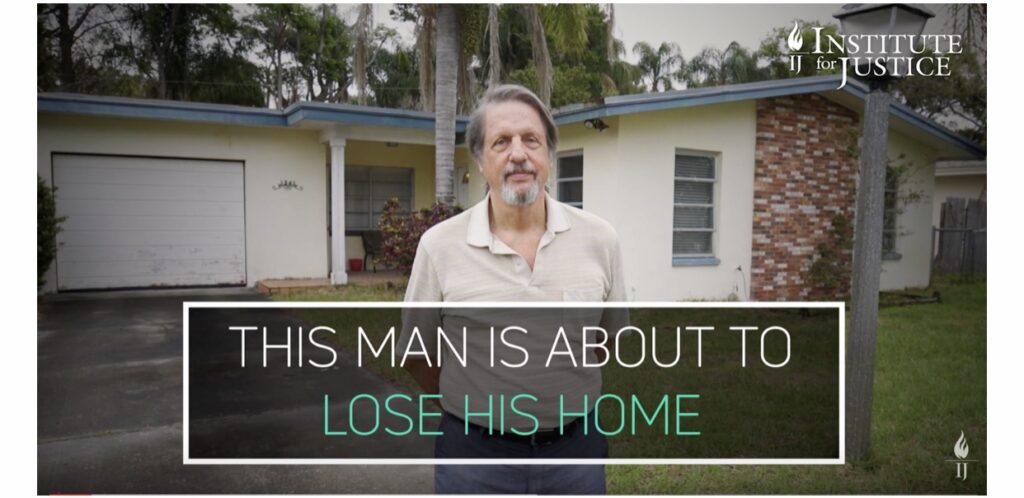
Florida town attracted national attention last week for its efforts to fine a 69-year-old retiree nearly $30,000 and then foreclose on his home because he was unable to pay—all because he failed to cut his grass.
The Tampa Bay Times reports that the city of Dunedin claims its Code Enforcement Board, which is run by citizens but backed by government authority, fined homeowner Jim Ficken $500 per day over code violations—an increased fine because he is a “repeat” offender.
Ficken’s Follies
In 2015, he committed his first “offense” when he left town to take care of his dying mother in South Carolina and left his grass unattended. He committed his second violation last summer when he had to manage her estate and settle affairs after her passing. This time, his grass was left uncut because the man who cut it died while Ficken was away. Then, the report says, Ficken’s lawnmower broke, and he let the grass on his front lawn continue to grow. The board claims they received complaints about the height of his grass, which grew past the 10-inch limit last summer, though his attorneys say they have seen no evidence of complaints.
Ficken says he had no idea he was racking up the fines until he returned home from South Carolina last August. A city inspector walked past his house and notified him he’d soon be receiving a “big bill from the city,” at which point he purchased a lawnmower and cut his grass.
A city should not be able to take somebody’ house for having tall grass.
Two days later, the city inspector confirmed Fichen’s lawn was in compliance, but he was still not informed that, at that point, he owed the city $23,500. The following month, the city fined him for an additional 10 days while he was in South Carolina. Also in September, the city officially declared the grass to be an appropriate height. By that time, his bill was up to $29,833.50—and the fines were accruing interest.
Last week the city moved to foreclose Ficken’s home over his inability to pay the exorbitant fees, and in return, he filed a lawsuit. The Times reports he is “seeking $1 in nominal damages, attorneys fees and injunctions that would relieve him of the fines.” He is being represented pro bono by the Institute for Justice (IJ), a legal advocacy organization. They are citing the Eighth Amendment’s Excessive Fines Clause, arguing that “a city should not be able to take somebody’ house for having tall grass.”
“Losing your home because you inadvertently let your grass get too long is the very definition of an excessive fine,” said Ari Bargil, an attorney at the Institute for Justice.
IJ won a similar legal battle that reached the Supreme Court earlier this year. In Timbs v. Indiana, the justices ruled 9-0 that the excessive fines clause applies to local and state governments. This case is relevant to Ficken’s. As Bargil says,
No one should face crippling fines, let alone foreclosure, for trivial code violations. Dunedin’s Code Enforcement Board operates like a nightmarish homeowners association, but as a public board, it cannot rule with an iron fist. Rather, it must abide by state laws, as well as the state and federal constitution.
Ficken’s attorneys are also addressing the government’s imposition of these fines on people who do not have the means to pay them. “Legal tradition maintains that a person’s ability to pay a fine should be considered,” they write, “yet today few government bodies consider the fairness of imposing large fines on Americans of limited means.”
A Nationwide Racket
Ficken is hardly the only victim of the city’s punitive measures, which amount to a revenue-generating scheme. According to IJ, Dunedin went from collecting $34,000 in 2007 to $1.3 million last year.
Continue reading here.
[Editor’s Note: This article was written by Carey Wedler and originally published at Foundation for Economic Education. Title changed by P&P.]











